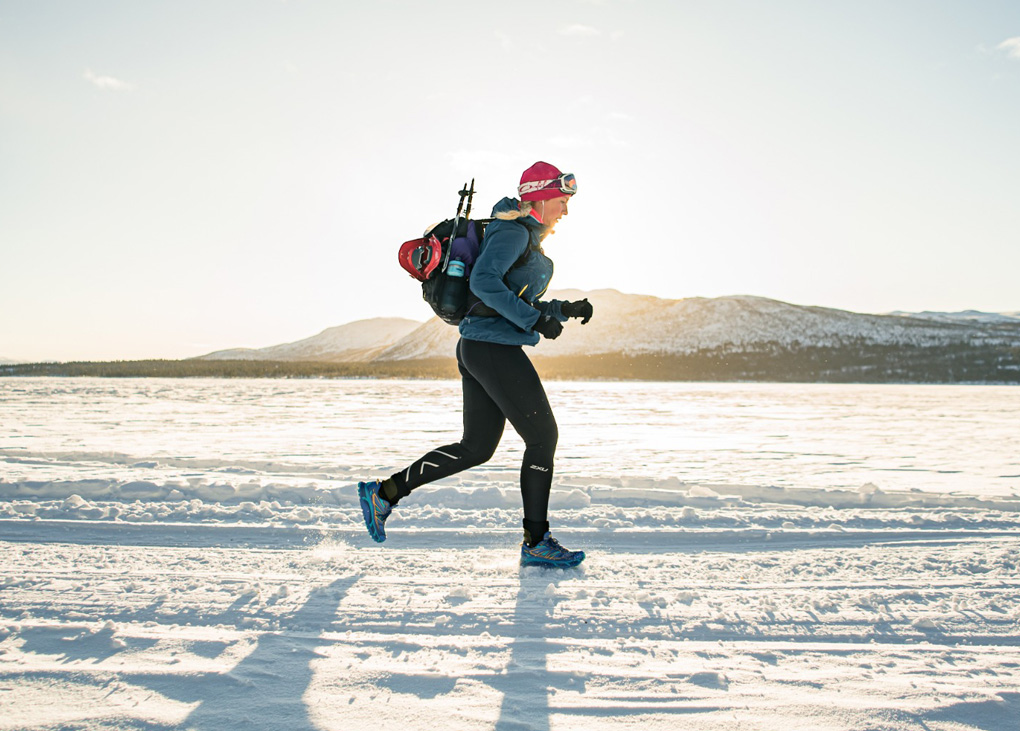The University of Melbourne has found a new use for one of its research refrigerators: helping to train a woman for an arctic marathon.
Sia Kindberg is undertaking the 230km Ice Ultra Arctic marathon in February next year at Swedish Lapland, Sweden. Temperatures can drop to -40°C, and Kindberg will be expected to carry her own food and clothing. She is fundraising to rebuild a school in Thailand through running in the marathon.
In the lead-up to the event, she is working with students Patrick Bradfield Smith, Jacqueline Coelho and Rohit Naidu, Professor in Ocean Engineering Alessandro Toffoli and mechanical engineer Liam McGregor to test her body’s reactions to different clothing fibres.
Kindberg explains the research will help her understand what types of clothing to take to minimise weight and avoid situations of sweating, which can cause hypothermia.
The fridge they are using is normally utilised for research on wind, waves and sea ice in the polar environment. Professor Toffoli says in the past he has had students use it to investigate how sea ice is broken up by waves. The research team has installed an extra fan to to achieve temperatures below -20°C.
The lab can also generate wind within a flume, an artificial channel normally used to move water. If the airflow is directed beyond the confined space of the flume, it can produce a harsh environment where the air circulation boosts the perception of cold temperature, creating a great setting for training in polar conditions.
The team has been excited by the fusion between science and human drive.
“We are exploring the limits of human resilience and adaptability, extracting insights to give our athlete an unparalleled edge in the Arctic Ultra,” says Bradfield Smith.
Event organisers will provide contestants with traditional Swedish Indigenous teepee tents and two reindeer hides for sleeping, along with hot water stops every 10km.
There are 40 runners in the event next year, although only six women – and usually only 33 per cent of competitors complete the marathon.
More details about the event – including race updates – are available at the Ice Ultra Marathon website.
Feature image courtesy of Beyond the Ultimate.



Leave a Reply